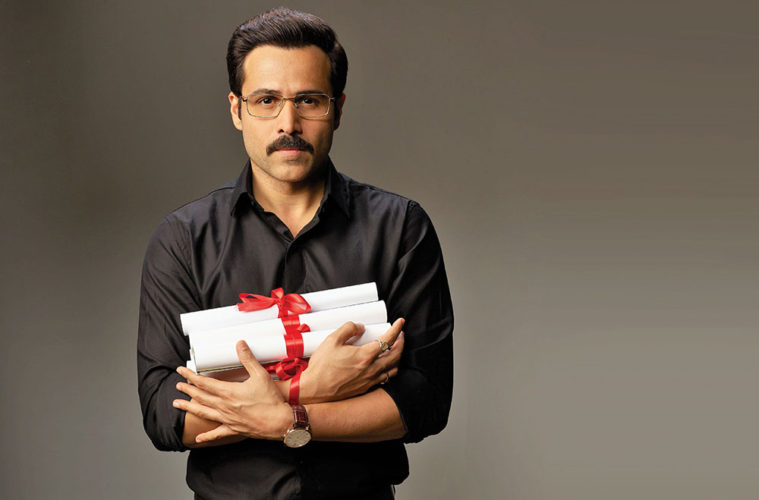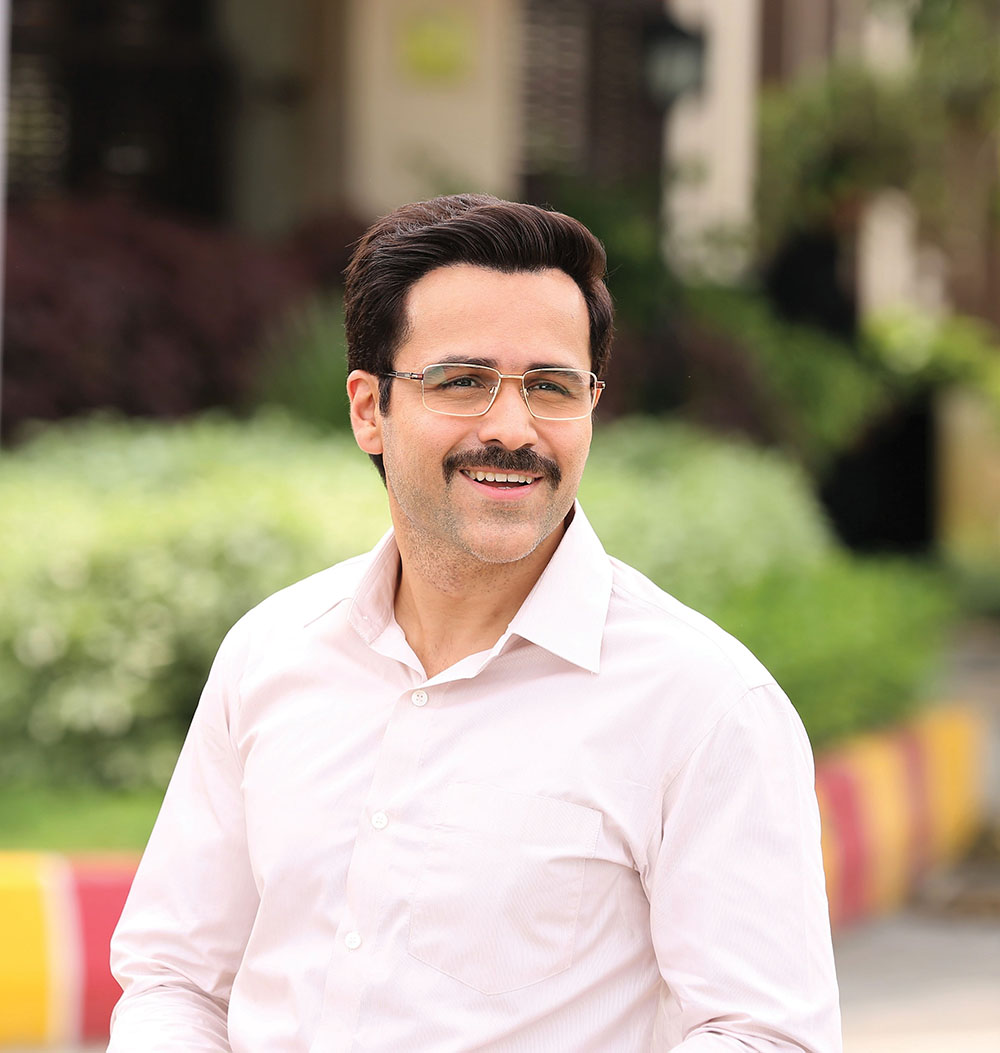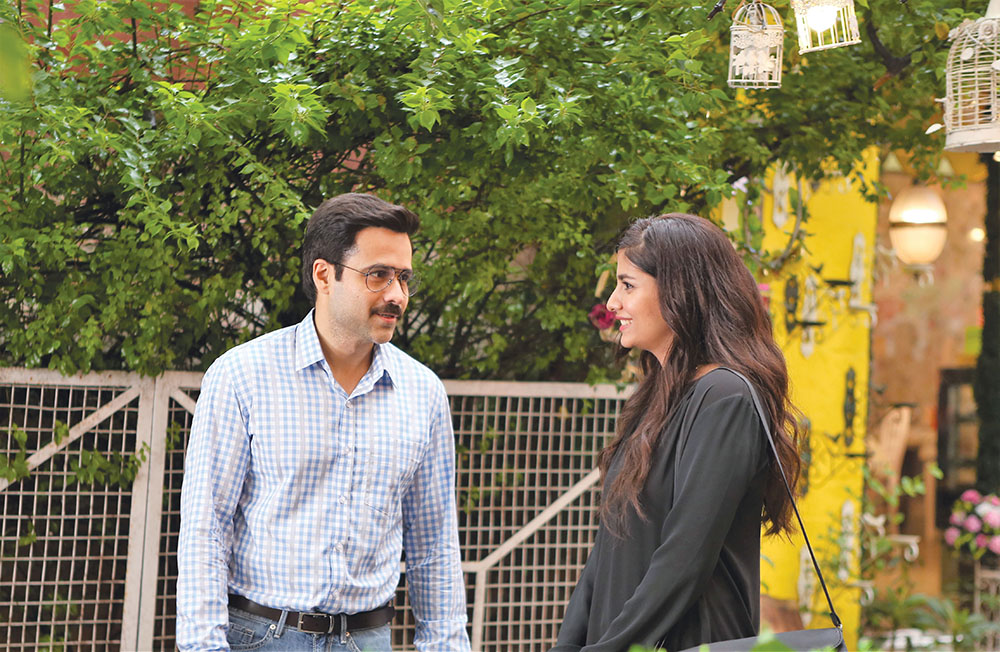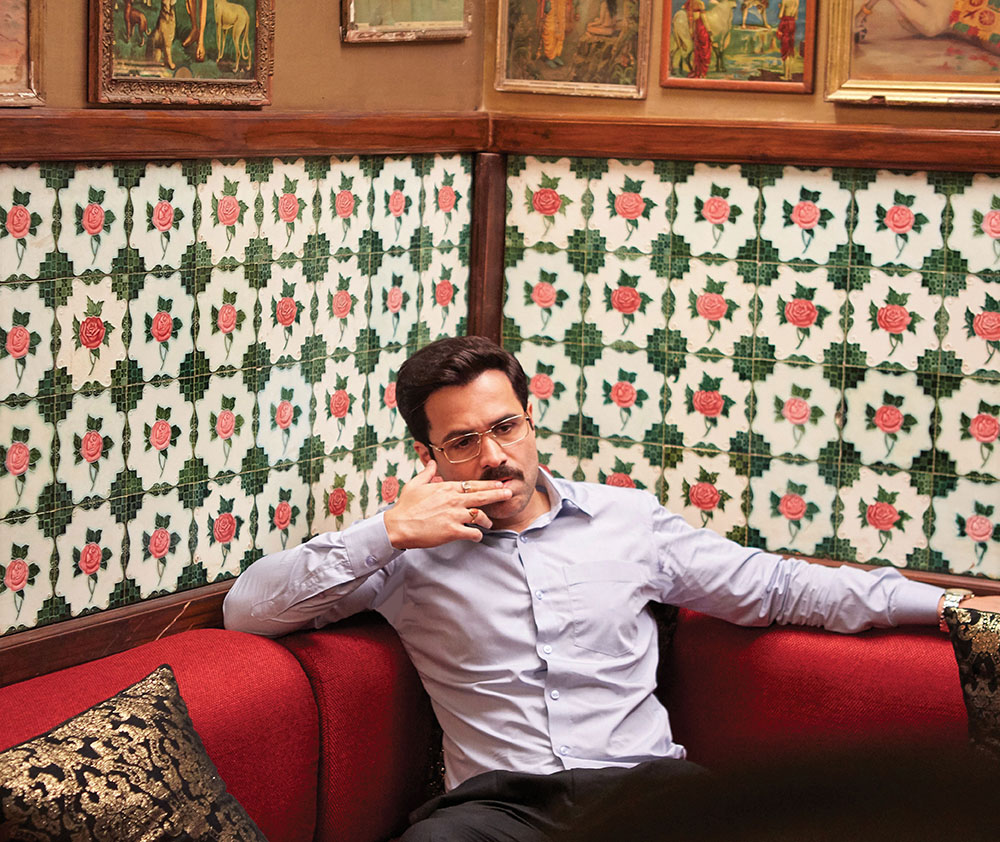Emraan Hashmi has come a long way since his debut in the year 2003. Murder, which emerged as a financial success, was the movie that got him noticed and that’s when he got the title “serial kisser”. Right from his professional choices (doing movies that have heroines in the limelight) to his personal life (not attending film parties and having a friend circle mostly outside the film industry) one can see a refreshingly different attitude. His recent autobiographical account The Kiss of Life: How a superhero and my son defeated cancer is the story of how his son Ayaan fought and defeated cancer. The book has an inspirational tale that has managed to impact the lives of many parents and children who have been fighting the disease. In this exclusive interview with Delhiites magazine Emraan Hashmi talks about the testing phase that he had to go through as a father, his belief system and his latest movie Cheat India.
Q1. We read about your son. How has that time at home helped you in terms of bonding with your family ?
Well actually the most testing time about that phase was that I couldn’t take a break. People think that I took a break in that phase. But when my son was shifted to a hospital in Canada and it was all in the course of fifteen days, I came back and did a hundred day schedule in Mumbai and Cape Town. So not many people know about that. But I think work is also a great healer. The good thing about movies is when the camera switches on you can forget about your problems. But it wasn’t about forgetting problems. I still had the responsibility of a father and my family was there taking care of him. Then I went and got him back from Canada. But yes that was a testing phase because I couldn’t be with him. Work commitments and timelines had to be abided by. But there were enough people in my family and support system to take care of him.
Q2. Please could you tell us a little bit about your adventures in the Bhatt camp ?
Of course that’s the company I had started off with and I started as an assistant director with my first film. I did my first film with them Footpath in 2003. We’ve had a successful run. We’ve had a huge success rate with films. Given some really great films and some really good music in the films. There was a time when we had to move on and it was very important for me to work not that I wasn’t working with other people before – so I wanted to take the next step in my career and that is why the last film with them happened two years back. We haven’t stumbled upon a script that we can make into a film at the moment but never say never.
View this post on Instagram
What do you’ll think of the @delhiitesmagazine cover? #delhi #magazine #whycheatindia #emraanhashmi
Q3. Have you ever struggled with the “serial kisser” tag ?
I’ve not struggled. It’s something that I’ve benefited from for sure. It’s an image that was kind of constructed by me ten years back. It was something that I benefited from but at the same time it started becoming something that was sort of weighing me down when I wanted to go ahead and do different kinds of films and in different kinds of genres. A lot of filmmakers like to play it safe and say that these are the kind of films that do well. It was the erotica, the thrillers that did well. In our industry we generally like to play it safe. But now things are changing. I think it’s a recurring question that keeps arising even when I don’t do it in a film. I know my priorities and I know where I am going. It’s about films, it’s about stories and it’s about the passion that I have for cinema. Conversations about kissing took place behind closed doors when I started and there was a shock value associated with it and it was even said that it is contaminating our country’s culture and Bollywood culture. So it became a separate thing but now it’s a done deal. You know now not too much fuss is made about it. Now people aren’t called serial kissers if they kiss in any film. This was a term that I got because of a t-shirt that I wore and that became a media-driven thing.
Q4. That was a very difficult time for you and your family. How did you find the strength to carry on ?
I think we all have that strength. In retrospect when you go through a situation like this, even right now if I try and look back at that moment, I think about how the hell did I and the entire family cope with this or get through those two years but I think we all have it in us. I think we all live with a certain amount of hope. We want to fight for our family members and it was a fight for Ayaan and he fought it first and foremost as a kid. It was all him and we just gave him a support system. He fought the disease very bravely. After the first week I realized that kids are more tuned in or would be more successful at fighting something because we as adults bog ourselves down with concepts of cancer and death and all that. Kids are fearless. These are things that society imposes on us and these are things that make us weaker. So as we grow we lose that sense of innocence. That’s why there is a high success rate for kids when they have cancer. That dwindles when you go into your 30s and 40s because it has a lot to do with your mental capacity to cope with an illness. Adults unfortunately lack that.
Q5. How did you end up writing an autobiographical book titled The Kiss Of Life ?
I didn’t have any intentions of writing one but I was pushed by a friend who stays in Delhi and who is one of India’s biggest investigative journalists. He asked me to pen this down and I told him I didn’t know how to pen things down because I’ve never written a book. He got Bilal to help me out with it and together it took us about twelve to fourteen months to put everything down on paper. Very very taxing, very very nerve racking because I had to actually relive those six months with the trauma. But it was almost a blessing in disguise. There was some healing because it was cathartic and I wrote the book with a pen and as I let it all out on paper I knew that it was time to move on. At least this is a memoir for parents and for kids and anyone who is battling the disease and who wants to battle the disease for the future. There are a lot of therapies written there and hopefully when my son grows up he’ll read it and he’ll realize that he’s been through so much.
Q6. What role have you enjoyed playing the most on screen ?
Lots of them. Jannat has been one, Awarapan, Shanghai, Once Upon A Time In Mumbai. But the favorite would be Shanghai because I broke the mould and did a role people wouldn’t normally expect me to do. It was a small town guy that I couldn’t relate to and it wasn’t easy to sink my feet into it. Very few Bollywood movies give you that opportunity to adapt and try something risky and new. I love taking risks and for me it was a very fulfilling journey because it was a fantastic character and it changed my career graph.
Q7. What is the most important thing to you in life ?
Honesty, integrity, respect and kindness.
Q8. Can you please tell us a little about your latest movie Cheat India ?
It’s basically about the education system. A very fraud and faulty education system has been going on since the colonial era. It was imposed on us by the British to create a bunch of clerks and we are just stuck in that rut. We are a fast developing nation but we could have been all guns blazing, firing on all cylinders and going ahead, faster than China if we didn’t have such an education system. It’s basically bogged down with things like rote mugging and with under qualified teachers and other things. To top it off we have umpteen scams that go on in our country like paper leaks, different scams for people appointed in service jobs or undeserving students getting in for a certain amount of money so that they can get ahead and get great grades by things like student impersonation with middle men. I am playing the middle man in the movie. A man who for a fee can get these undeserving students good grades to get ahead and he justifies it to himself and he’s got his own funda about why he’s doing it and he’s unapologetic about it. So it’s about a fundamental problem in our country. It’s the biggest problem because we have the youngest population in the world and its eating us from the inside and we don’t even know it.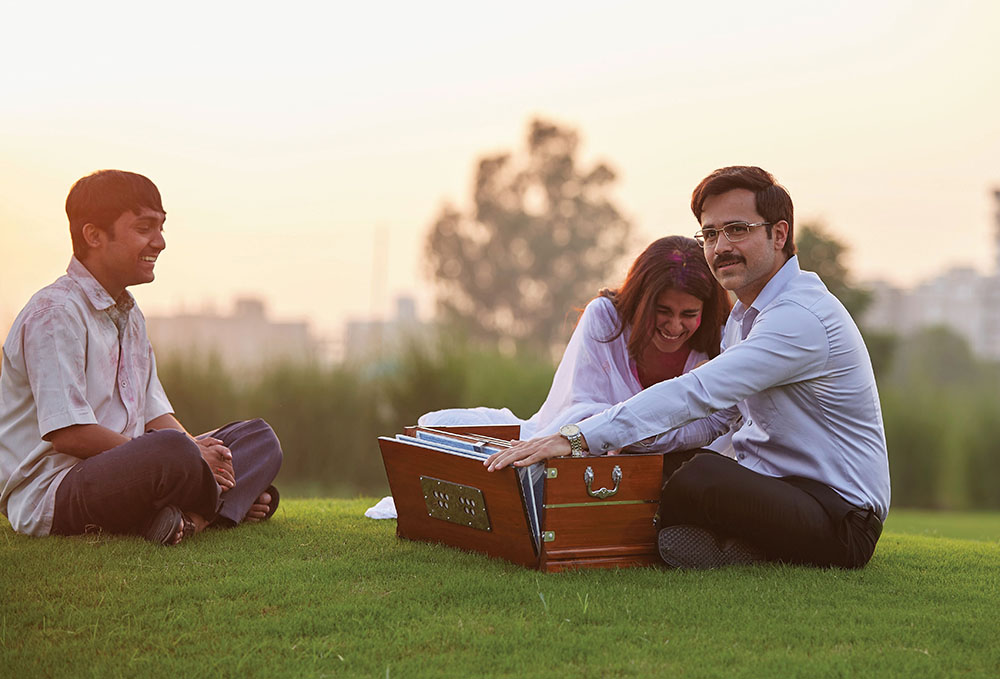 Q9. You don’t attend Bollywood parties. Why is that ?
Q9. You don’t attend Bollywood parties. Why is that ?
Because I hate them. I despise them. I can’t put it in clearer terms. I find them boring and I just don’t like them. Not that I haven’t tried to be a part of it. I have been to award ceremonies and performed there. Then there comes a point in your life when you just want to do things that make you happy. If my career depends on it then I would take it as a bitter pill and just say that I should do it but my career’s not dependent on going to film parties and award ceremonies. I think eventually it’s about films. There’s another reason why I do that. I think it’s for a sense of sanity. I do as many films as I can take. I don’t mean this in a negative way but for my own sanity and grounding there is a different life that I lead away from films. After the camera cuts and I go him, I have a life with friends that are not associated with the film industry. I like to have a simple life away from all of this to just keep my bearings in place. So it’s by design and the other reason is also that I don’t drink alcohol.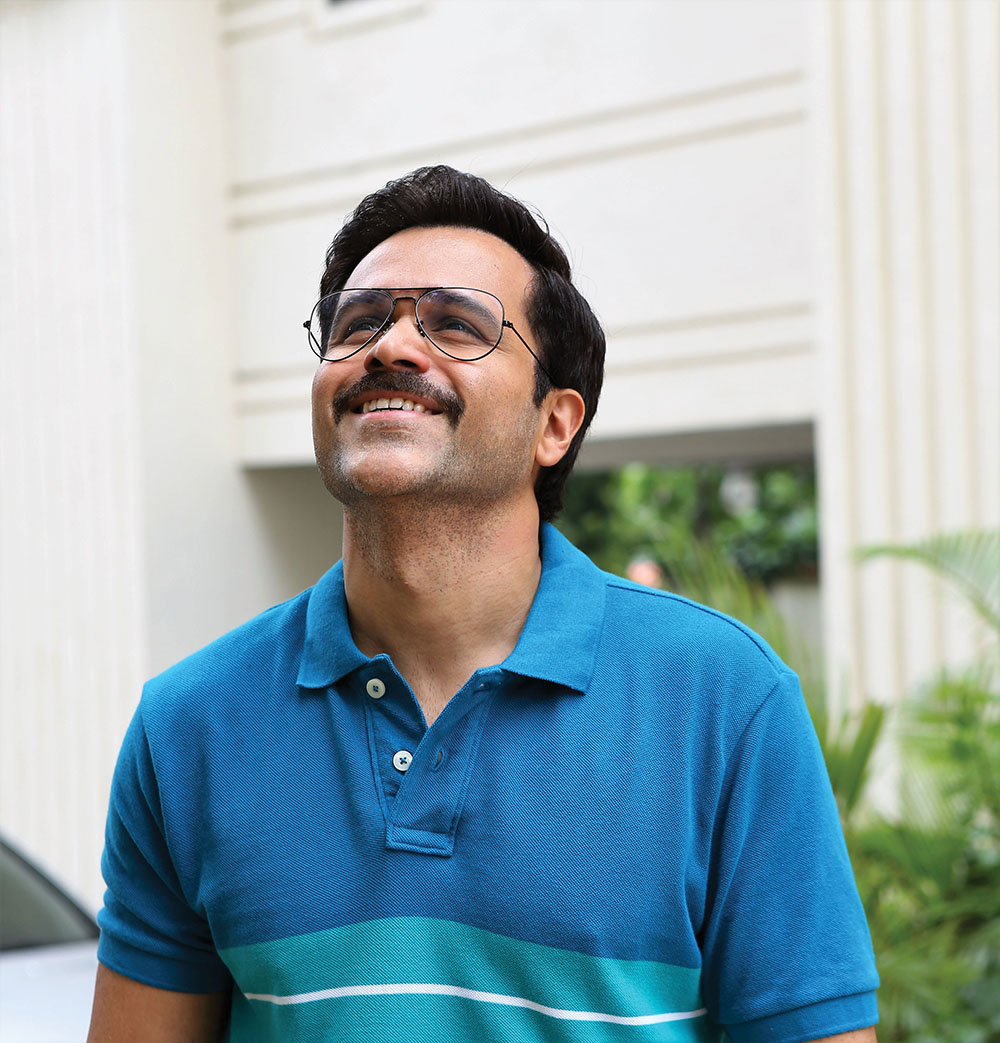 Q10. Your debut was a long time back in 2003. How do you think the industry has changed in all these years ?
Q10. Your debut was a long time back in 2003. How do you think the industry has changed in all these years ?
I think part of the industry has not changed. There’s a part of the industry that has been stuck in time. But there is another bunch of new filmmakers who want to experiment and take risks and are toying with new subjects. Films that are there now when I had started off wouldn’t have done well at all. Some of these films would have been very ahead of their times. But right now I think there is a space and place for everything and for all kinds of films. I think it is a kind of a new dawn for our industry. It has a lot to do with things like the internet taking off in our country. It has boomed and you have things like YouTube and Netflix and different platforms. Also the mindset of the audience has changed and evolved. It’s because of that evolved mindset I think producers and directors who are new age want to offer this new age audience something different and are thinking out of the box.
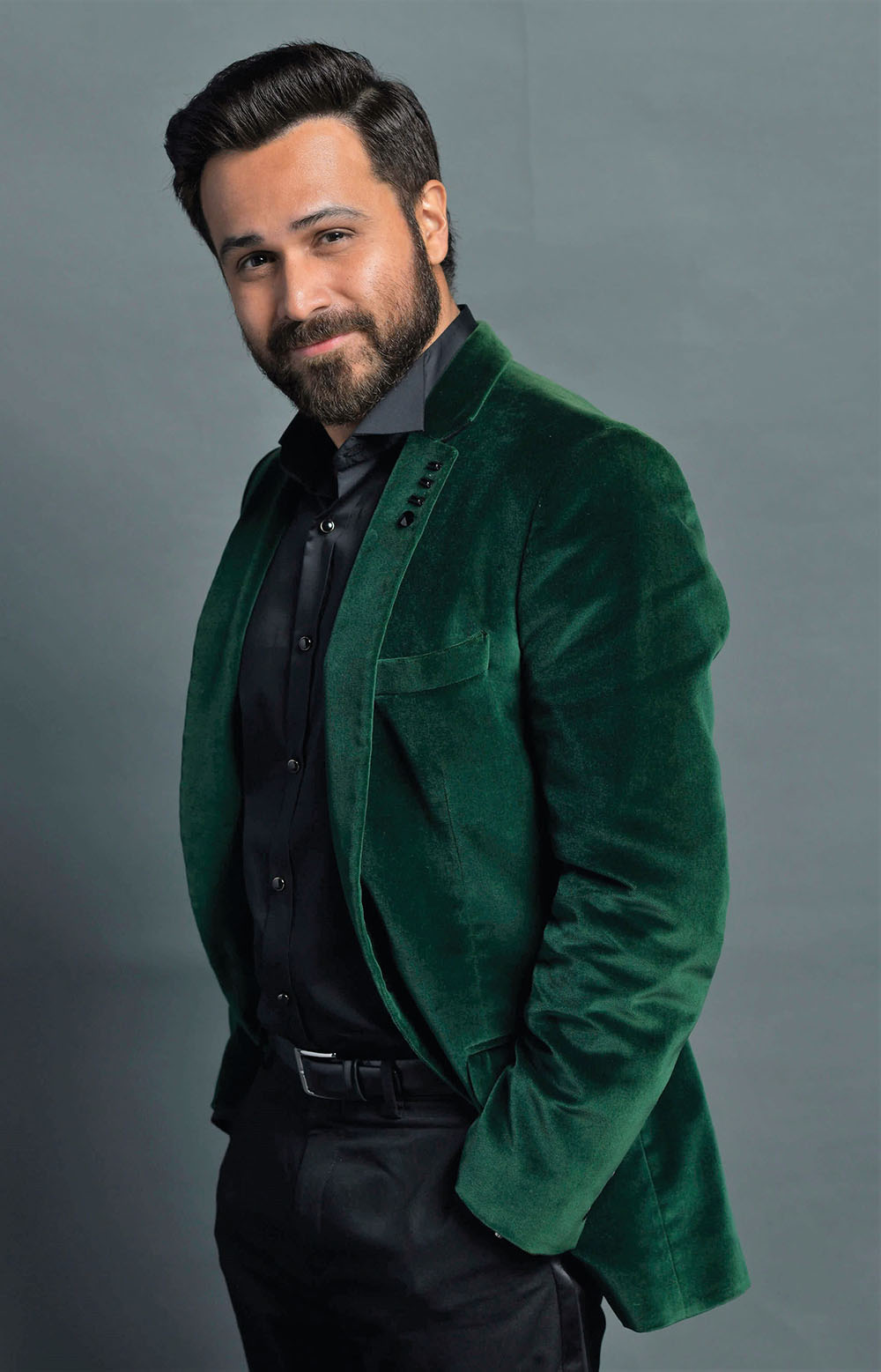
- Who’s your favourite co-star ?
Vidya Balan.
- Who do you think is the most talented actor/actress these days ?
Ayushmann Khurrana, Radhika Apte & Alia Bhatt.
- Who is your idol ?
I admired Mr. Bachchan and Dilip sahab when I was growing up.
- Your favourite on-screen moment ?
My first dialogue in my first film Footpath. That is one scene I will never forget. Just the fact that I was so nervous at that point of time and I completely ruined it. We had to packup that day and I didn’t get that dialogue right.
- Your guilty pleasure would be ?
Binging on a Netflix show.
- Your favourite place for a nice vacation ?
Maldives, London, Paris, New York.




